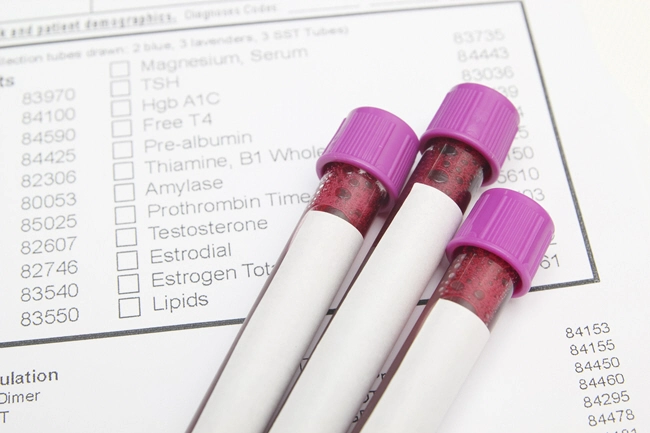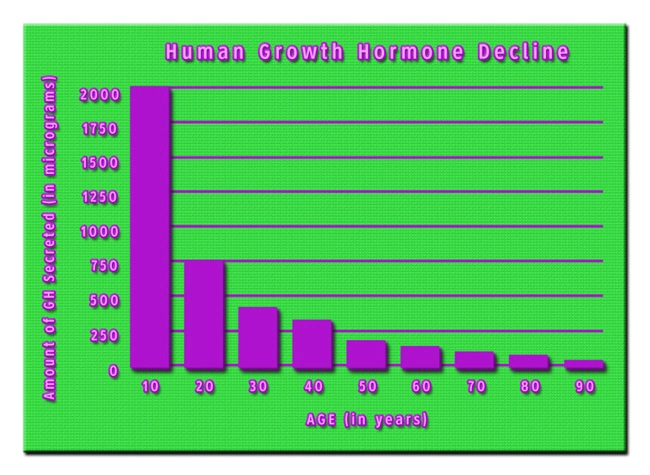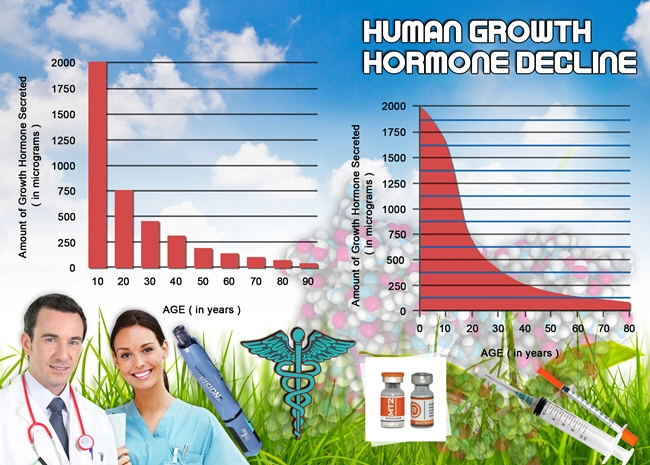
Video Link: https://vimeo.com/290609198
Video Download: Click Here To Download Video
Video Stream: Click Here To Stream Video
Video Link: https://vimeo.com/290609899
Video Download: Click Here To Download Video
Video Stream: Click Here To Stream Video
The Relationship Between Sleep and Growth Hormone
Athletes, bodybuilders, fitness enthusiasts, and health-conscious people have long known about the importance of sleep in replenishing Human Growth Hormone (HGH) levels.
Want proof? Consider this: even the best athletes in the world may see a drop in their performance due to extended travels across several different time zones. 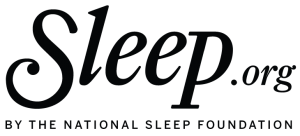 This travel disrupts their circadian rhythms, a 24-hour cycle driven by a circadian clock that has a massive impact on many bodily functions, including the sleep-wake cycle.
This travel disrupts their circadian rhythms, a 24-hour cycle driven by a circadian clock that has a massive impact on many bodily functions, including the sleep-wake cycle.
Many athletes, especially endurance athletes, experience a suppressed and weakened immune system by the nature of their training -- and a lack of sleep makes this unfortunate condition worse.
And this relationship is also essential for ordinary, everyday people who are not athletes or hard-core fitness fanatics. Sleep is one of the basic foundations of optimal health, yet it is all-too-often overlooked and neglected.
The problem of sleep deprivation is exacerbated by technologies like the light bulb, cell phones, and the Internet, which keep us awake in an increasingly 24/7 world.
In fact, in today's always device-connected, quick-based culture, Americans are more sleep-deprived than ever. According to a 2013 Gallup poll, the average American slept 6.8 hours a night -- and 40 per cent slept less than six hours.
Those figures are similar to Gallup polls in the 1990s and 2000s, but Americans, on average, slept much more in the 1940s. Americans average 6.8 hours of sleep which is down more than an hour from 1942.
Sleep experts recommend seven to nine hours of sleep for adults. Currently, 59% of U.S. adults meet that standard, but in 1942, 84% did. Crunch the numbers. 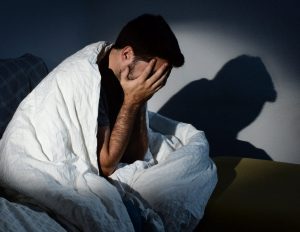 Four in 10 Americans get less than the recommended amount of nightly sleep, compared with the 11% who did so 70 years ago.
Four in 10 Americans get less than the recommended amount of nightly sleep, compared with the 11% who did so 70 years ago.
Why the Lack of Sleep is Crucial
Why are these grim numbers from the Gallup poll so alarming? The answer is simple: a lack of sleep elevates the chances of severe health risks. Countless studies have proven that insomnia is linked to a broad range of health afflictions such as:
- Weight-gain. Lack of sleep leads to metabolic changes that may lead to weight gain and cause hormonal changes that make us hungry and brain changes that make it hard to resist eating the wrong kinds of foods.
- Type 2 diabetes. This is especially true for children. A recent study concluded that children who slept on average one hour less a night than recommended had higher risk factors for type 2 diabetes, including higher levels of blood glucose and insulin resistance. Conversely, children who slept longer had lower body weight and lower levels of fat mass. Sleep duration was also inversely related to insulin, insulin resistance, and blood glucose.
- Cancer.
- Cardiovascular disease.
- Depression.
- Attention Deficit Hyperactive Disorder (ADHD).
- Cognitive impairment and brain fog.
- Depression.
- Alzheimer’s disease.
- Decreased immune system function.
- Shrinking muscle mass and loss of strength.
If the above-mentioned health problems weren’t bad enough, consider this:
 The National Highway Traffic Safety Administration (NHTSA) estimates that 1,550 fatalities and 40,000 injuries that occur annually in the United States are a direct result of drowsy driving.
The National Highway Traffic Safety Administration (NHTSA) estimates that 1,550 fatalities and 40,000 injuries that occur annually in the United States are a direct result of drowsy driving.
The National Transportation Safety Board (NTSB) agreed. The NTSB estimates that fatigue contributes to as many as one-fourth of all traffic accidents -- car, train, bus, or plane.
Drowsy driving is a hazardous mixture of driving while sleepy or extremely fatigued. Drowsy driving can cause drivers to fall asleep at the wheel, slow their reaction time if they suddenly need to steer or brake, affect driver’s reasonable judgment, and result in drivers paying less attention to their driving.
As a result of these grim statistics, in 2014 the Center for Disease Control (CDC) labeled sleep deprivation a public health epidemic.
After considering these sobering statistics, a stark fact emerges: virtually every single aspect of our lives is impacted by sleep...for better or worse.
One researcher stated that “Lack of sleep makes us sick, fat, and stupid.”
Researchers have discovered a condition named presenteeism, in which workers clock in but are unable to perform productively. One estimate of the cost of this phenomenon to the US economy annually is in excess of $63 billion.
None of this list of problems paints a pretty picture. By now you can easily see just how significant the issue of sleep deprivation has become. So, is there anything you can do about it? Yes! Keep reading to discover more about the relationship between sleep and Growth Hormone.
The Overlooked Role of Growth Hormone in Sleep
Here’s a surprising fact. Every one of the above-mentioned health problems that occur as a result of a lack of sleep is the same problems that develop as a result of a lack of Growth Hormone...each and every last one of them!
Coincidence? NO! Before we explain why let’s take a brief look at Growth Hormone and the mechanics of Growth Hormone release.
Human Growth Hormone is a 191-amino acid, single-chain polypeptide that is manufactured, stored, and then secreted by somatotropic cells of the anterior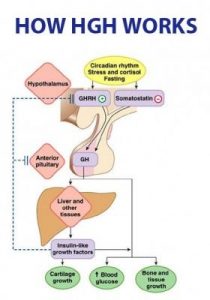 pituitary gland. Growth Hormone is an essential component of the endocrine system and plays a vital role in boosting our energy levels, building muscle, vaporizing fat, and speeding up our metabolism.
pituitary gland. Growth Hormone is an essential component of the endocrine system and plays a vital role in boosting our energy levels, building muscle, vaporizing fat, and speeding up our metabolism.
Growth Hormone is released by exercising, fasting, and especially during sleep, when it can get to work repairing and restoring tissue, lowering blood pressure and body temperature, relaxing muscles, supplying blood to muscles and organs, and performing a wide array of restorations throughout the body.
The Stages of Sleep
Typically most people go through four stages of sleep unless their sleep is disrupted. A little-known fact is that these stages are not always in sequence; at times, one step will jump back to a previous stage before moving forward to the next.
The stages occur in a cycle that is usually around 90 minutes long.
Here are the four stages of sleep:
- Stage one: light sleep. This stage is the beginning stage of falling asleep.
- Stage two: The beginning of sleep. In this stage, we become unaware of our surroundings, and our body temperature lowers. This is why sleep experts recommend sleeping in a cold room.
- Stage three: The deepest stage of sleep, and also the most restorative stage. In stage three, our breathing slows down; our blood pressure drops, our muscles relax, the blood supply to our muscles increases, and tissue and muscle growth occurs. This is also the stage that hormones are released -- including Growth Hormone.
- The fourth stage of sleep is the REM stage. REM is an acronym for Rapid Eye Movement. This stage occurs at about 90 minutes after falling asleep and starts the 90-minute cycle mentioned earlier. This stage recharges our energy batteries and is crucial for our ability to awake refreshed and productive. This is the stage where dreams happen; our eyes move back and forth, and our bodies become immovable since our muscles take a well-deserved break.
- REM is also the stage where the majority of restoration occurs since the blood enters the muscles more efficiently. Remember, the pituitary gland needs a signal to secrete HGH, and that signal is the REM stage. If you have trouble falling into a deep, restorative sleep, the pituitary will continue to do its job and release Growth Hormone, but in far diminished amounts.
The REM stage of sleep is the most essential stage since the pituitary gland secretes large amounts of Growth Hormone in this stage. This is the key to uncovering the link between sleep and Growth Hormone.
Sleep is by far the best way to “set the stage” for the pituitary gland to secrete the vital HGH needed for our bodies to perform optimally. The best way to ensure your pituitary will release adequate amounts of HGH is to strive for a minimum of eight hours of sleep nightly.
ensure your pituitary will release adequate amounts of HGH is to strive for a minimum of eight hours of sleep nightly.
The pituitary gland does not release Growth Hormone at an even, steady pace. Instead, the gland secretes the hormone in a pulse-like manner. These pulses are released during the day while exercising or fasting.
But can you guess when the most massive pulses of HGH occur? Yep, you guessed it. During sleep. Studies have shown that the largest pulses occur before midnight, and smaller pulses occur in the early morning hours.
This Growth Hormone releasing schedule demonstrates how devastating it is “to burn the candle at both ends.”
Seniors Have an Especially Tricky Challenge
Fact: Growth Hormone production begins in children, explodes in teenagers, slows in young adulthood, and starts to drop as we age.
Numerous studies have shown that Growth Hormone begins to decline around age 30. This decline occurs at approximately 10% each passing decade.
Coincidentally, older people tend to spend less time in the deep stages of sleep. Is it purely coincidental that these two events (diminished Growth Hormone levels and less deep sleep) occur at the same time?
The answer is “NO!”
But This Conclusion Also Leads us to the Solution
So is insomnia a price we are forced to pay for living in modern-day society? Are we doomed to suffer from a lack of Growth Hormone?
Of course not. The problem of sleep deprivation has been described in detail. Now it’s time for solutions and recommending the actions you can take immediately to restore your Growth Hormone to healthy levels.
- Lose that fat! A recent study discovered that individuals with excess fat around their mid-section had less than half the amount of Growth Hormone as slender folks. Another study concluded that overweight people had lower levels of both IGF-1 and HGH. But there is good news. Once these big folks lost the weight, their HGH levels returned to normal. Belly fat is especially hazardous and is linked to a broad range of health problems. Declare war on that fat and get rid of it!
- Get off that couch. Any kind of exercise is better than none. But consider giving the high-intensity exercise a try. This means going through your workout routine at a quicker pace than usual. Physical training can ramp up HGH, so get moving.
- Watch what you eat. Sugar does not do a body good, in any way, shape, or form. Sugar and refined carbohydrates bump up insulin levels far more than other foods, so make every effort to minimize your consumption of both. Massive amounts of sugar and refined carbs result in weight gain and lower HGH -- not a desirable outcome.
- Watch when you eat. As you learned earlier, bedtime and sleep time is when the pituitary releases the most HGH. Food in general and high-carbohydrate foods, in particular, may trigger an insulin spike. To be safe, plan to avoid eating for two to three hours before retiring.
- Consider intermittent fasting (IF). Intermittent fasting is not starvation. Instead, it is eating within specified time periods. For example, only eating between noon and 8 PM would be a 16-hour intermittent fast. Another approach is the 5-2 method, where you would typically eat five days of the week. On the remaining two days your food intake is restricted to 500 calories. Intermittent fasting scorches body fat, lowers blood sugar and insulin levels, and may cause a massive doubling or tripling or Growth Hormone levels in a short time.
- Ensure you are getting deep, restorative sleep continually. Considering what we have covered so far, an indisputable fact should be apparent: the more you sleep, the better your sleep cycle and your Growth Hormone levels will surge.
- Here are a few ideas to help you develop better sleep habits: Turn off all of the blue lights in your bedroom while preparing for bed. Watch your afternoon and evening caffeine intake, keep your bedroom cool, don’t exercise intensely shortly before bedtime, and consider taking a melatonin supplement.
We have saved the best for last. Contact our clinic to discover the benefits of Human Growth Hormone replacement therapy.
 Remember the formula we explained earlier. A lack of sleep = a lack of HGH. If our levels of HGH are low, we will not feel energetic and may not feel like exercising. Our willpower will be adversely affected, and we may not eat healthily.
Remember the formula we explained earlier. A lack of sleep = a lack of HGH. If our levels of HGH are low, we will not feel energetic and may not feel like exercising. Our willpower will be adversely affected, and we may not eat healthily.
When these problems arise we may lack productivity at work, and that may cause us problems in getting to sleep. Talk about a vicious cycle!
So let us reverse engineer the formula. Restoring Growth Hormone to healthy levels = more and better quality sleep.
Restoring your Growth Hormone to your youthful levels will clear away mental confusion, skyrocket your energy, and bring back your zest for life.
This will put sleep deprivation in your rear-view mirror...exactly where it belongs!
References
Growth hormone secretion during sleep
Contact Us Today For A Free Consultation
Dear Patient,
Once you have completing the above contact form, for security purposes and confirmation, please confirm your information by calling us.
Please call now: 1-800-380-5339.
Welcoming You To Our Clinic, Professor Tom Henderson.

- A Major Breakthrough in Anti-Aging Science is now Reality! [Last Updated On: October 12th, 2024] [Originally Added On: September 19th, 2020]
- All the Different Brands of Human Growth Hormone -- Guide [Last Updated On: February 10th, 2025] [Originally Added On: September 21st, 2020]
- Weight Loss Through HGH [Last Updated On: February 10th, 2025] [Originally Added On: September 24th, 2020]
- Did You Know: Sarcopenia is Increasing Among Senior Citizens at a Blistering Pace? [Last Updated On: February 8th, 2025] [Originally Added On: October 5th, 2020]
- Hormone Replacement Therapy Program Protocol Diary [Last Updated On: October 11th, 2024] [Originally Added On: October 9th, 2020]
- The Curse of Non-Alcoholic Fatty Liver Disease [Last Updated On: February 6th, 2025] [Originally Added On: October 11th, 2020]
- How Can I Get More HGH (Human Growth Hormone) Naturally? [Last Updated On: July 27th, 2024] [Originally Added On: August 16th, 2021]
- Cholesterol and Growth Hormone...the Truth May Surprise You! [Last Updated On: February 5th, 2025] [Originally Added On: October 7th, 2021]
- Growth Hormone FAQ's [Last Updated On: February 4th, 2025] [Originally Added On: October 8th, 2021]
- Growth Hormone: A powerful tool to battle Erectile Dysfunction [Last Updated On: February 6th, 2025] [Originally Added On: October 8th, 2021]
- How to buy Growth Hormone [Last Updated On: February 7th, 2025] [Originally Added On: October 8th, 2021]
- Testosterone Battles Diabetes [Last Updated On: February 3rd, 2025] [Originally Added On: October 8th, 2021]
- Growth Hormone protects your Adrenal Glands [Last Updated On: February 4th, 2025] [Originally Added On: October 8th, 2021]
- Buy Growth Hormone! [Last Updated On: February 9th, 2025] [Originally Added On: October 8th, 2021]
- Growth Hormone reduces Heartburn [Last Updated On: February 5th, 2025] [Originally Added On: October 8th, 2021]
- The Link Between Diabetes and Growth Hormone [Last Updated On: February 7th, 2025] [Originally Added On: October 8th, 2021]
- Growth Hormone and Nutraceuticals [Last Updated On: February 8th, 2025] [Originally Added On: October 8th, 2021]
- Growth Hormone and Depression [Last Updated On: February 3rd, 2025] [Originally Added On: October 11th, 2021]
- Growth Hormone and the Pituitary Gland [Last Updated On: February 1st, 2025] [Originally Added On: October 11th, 2021]
- Growth Hormone and Calorie Restriction. [Last Updated On: February 2nd, 2025] [Originally Added On: October 11th, 2021]
- Growth Hormone and Healthy Living Can Add Years to Your Life! [Last Updated On: February 2nd, 2025] [Originally Added On: October 11th, 2021]
- Welcome to Growth Hormone and Testosterone Therapy [Last Updated On: December 27th, 2024] [Originally Added On: October 11th, 2021]
- Human Growth Hormone Medical Guide [Last Updated On: June 9th, 2024] [Originally Added On: October 25th, 2021]
- HGH Female Blood Panel [Last Updated On: July 9th, 2022] [Originally Added On: October 28th, 2021]
